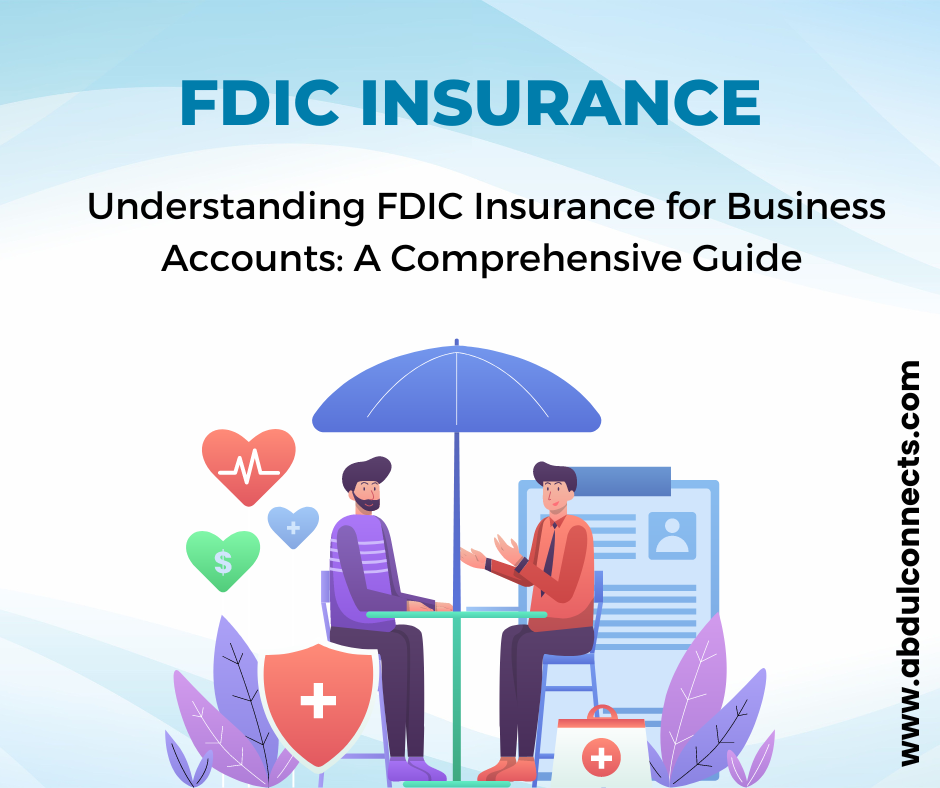
Understanding FDIC Insurance for Business Accounts: A Comprehensive Guide
The Federal Deposit Insurance Corporation (FDIC) plays a critical role in safeguarding the financial interests of depositors in the United States. Established in 1933 during the Great Depression, the FDIC was created to restore public confidence in the banking system by providing insurance for deposits in member banks. This insurance is essential not only for personal accounts but also for business accounts, offering a safety net that can be pivotal for business owners.
What is FDIC Insurance?
FDIC insurance protects depositors by covering their funds in the event of a bank failure. As of 2023, the standard coverage limit is $250,000 per depositor, per insured bank, for each ownership category. This means that if a bank goes under, the FDIC ensures that depositors will recover their insured funds, typically within a few business days. The insurance covers various types of accounts, including checking accounts, savings accounts, money market accounts, and certificates of deposit (CDs) .
Advantages of FDIC Insurance for Business Accounts
- Peace of Mind: Knowing that business funds are insured can alleviate financial stress for business owners, allowing them to focus on growth and operations.
- Enhanced Trust: FDIC insurance fosters trust between businesses and their banks, encouraging long-term relationships that can be beneficial for both parties.
- Financial Stability: In the event of a bank failure, FDIC insurance helps ensure that businesses can continue their operations without significant disruptions, thus maintaining stability in the economy.
- Regulatory Oversight: Banks that are FDIC-insured are subject to stringent regulatory oversight, which helps mitigate the risk of financial mismanagement and enhances the overall safety of the banking system .
Disadvantages of FDIC Insurance for Business Accounts
- Coverage Limits: The $250,000 insurance limit may not be sufficient for businesses with larger deposits. Companies with significant cash reserves must consider additional strategies to ensure their funds are fully protected.
- Potential for Bank Failures: Although the FDIC has a strong track record of preventing bank failures, the risk remains. Businesses must remain vigilant and choose their banking partners wisely.
Why FDIC Insurance is Essential for New Business Owners
New businesses often face heightened financial vulnerabilities. FDIC insurance provides a layer of security that can be critical during the early stages of operation.
- Vulnerability: Startups typically have limited resources to absorb losses, making the protection offered by FDIC insurance vital.
- Building Trust: Having FDIC insurance can help new businesses establish credibility with customers and suppliers, enhancing their reputation in the market.
- Risk Mitigation: By safeguarding business funds, FDIC insurance helps mitigate risks associated with starting and running a new venture .
Strategies for Maximizing FDIC Coverage
To ensure that business funds are adequately protected, consider the following strategies:
- Open Accounts at Multiple Banks: Distributing deposits across different FDIC-insured banks can increase total coverage.
- Utilize Different Ownership Categories: Consider opening accounts under various ownership structures (e.g., personal accounts, business accounts) to maximize coverage limits.
- Explore Insured Cash Sweep Accounts: These accounts automatically allocate funds across multiple banks, ensuring optimal coverage without requiring constant monitoring.
- Monitor Account Balances: Regularly review account balances to ensure they remain within the FDIC’s coverage limits, adjusting as necessary to avoid exceeding limits .
Conclusion
FDIC insurance is a crucial resource for businesses of all sizes, providing essential protection for financial assets. Understanding its benefits, limitations, and strategies for maximizing coverage can empower business owners to safeguard their funds effectively. While the insurance offers significant advantages, it is vital for businesses to remain aware of its limitations and actively manage their banking relationships to ensure their financial stability.
